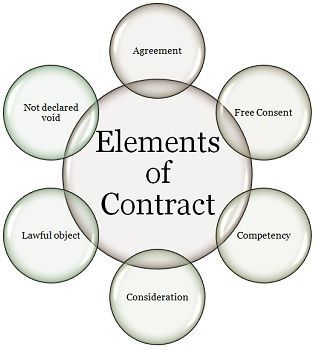As an entrepreneur in the tech industry, understanding contract law is crucial to protect your interests and ensure the success of your business. From hiring employees to entering into partnerships and licensing agreements, contracts play a vital role in defining the rights and obligations of all parties involved. In this article, we will discuss the key contract law essentials that every tech entrepreneur should be aware of.
1. Understanding the Basics of Contract Law
A contract is a legally binding agreement between two or more parties that creates enforceable rights and obligations. In order for a contract to be valid, it must meet certain criteria, including:
Offer and acceptance: One party must make an offer, and the other party must accept it.
Consideration: There must be a bargained-for exchange of value between the parties.
Capacity: The parties must have the legal capacity to enter into a contract.
Legal purpose: The contract must be for a lawful purpose.
2. Drafting Clear and Specific Contracts
When drafting contracts for your tech business, it is important to be clear and specific in defining the rights and obligations of each party. Using vague or ambiguous language can lead to misunderstandings and disputes down the line. Make sure to include all relevant terms, such as payment terms, delivery schedules, warranties, and intellectual property rights, in your contracts to avoid any potential conflicts.
3. Seeking Legal Advice
While it is possible to draft your own contracts using online templates or contract management software, seeking legal advice from a qualified attorney is highly recommended. A lawyer can review your contracts to ensure they comply with relevant laws and regulations, as well as provide guidance on any potential risks or liabilities. Investing in professional legal advice upfront can save you time and money in the long run.
4. Negotiating Contracts Effectively
Negotiating contracts is a key skill that every entrepreneur should develop. Be prepared to stand firm on important terms while also being willing to compromise on less critical issues. Make sure to clarify any ambiguities or uncertainties in the contract before signing it, and be sure to keep thorough records of all negotiations and communications related to the contract.
5. Enforcing Contracts and Resolving Disputes
If a dispute arises over a contract, it is important to understand your rights and options for enforcement. Depending on the nature of the dispute, you may be able to resolve it through negotiation, mediation, arbitration, or litigation. Having a clear understanding of the dispute resolution mechanisms outlined in your contract can help you navigate the process more effectively.
Contract law is a complex and nuanced area of law that requires careful attention to detail and precision. By understanding the basics of contract law, drafting clear and specific contracts, seeking legal advice when necessary, negotiating effectively, and knowing how to enforce contracts and resolve disputes, tech entrepreneurs can protect their interests and ensure the success of their businesses. Remember, when in doubt, always consult with a qualified attorney to ensure that your contracts are legally sound and enforceable.
